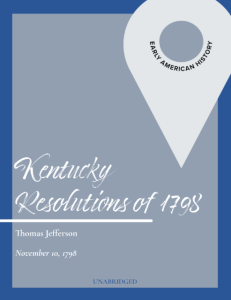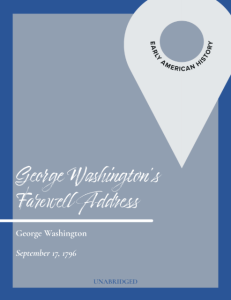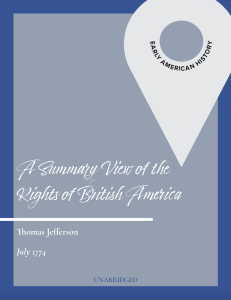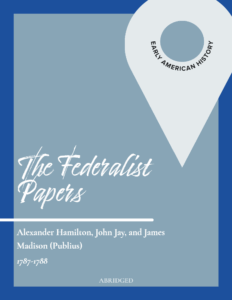
Power can tempt. It also reveals character.


Capital determines whether a society will be prosperous or poor, well-fed or not, populated by independent and self-reliant citizens or dependent subjects. An abundance of nutritious food, clean water, sturdy homes, safe modes of transportation, reliable sources of heat and power, modern medicines, and many other products and technologies that improve the quality of human life are impossible without capital.
A teacher can help students understand what capital is by encouraging them to think of capital as an individual’s “starter pack” for being productive and getting things done. Capital includes the tools, money, and other valuable resources a person needs to create something of value, or to solve a problem in order to create wealth.
For example, if you wanted to start a lemonade stand, the money you use to buy cups, lemons, water, and a sweetener is capital. While money is an important form of capital, capital can include other resources that help you create wealth for yourself by producing value for others.
Other Kinds of Capital:
Capital is anything you can use to “build” something that will provide experiences of value for other people. Money is the most obvious example of capital, but creativity, friendships, and even your honesty and intelligence, can be just as important, maybe even more important in some circumstances.
So, yes! Capital is cash and more: Capital includes any resource that helps you be more productive. Ask students: What kinds of capital do they have? Maybe it is their energy, ideas, or even their ability to make people laugh. Remind them that everyone—even people with little or no money—have important capital over which each person has much control: A person’s own reputation, honesty, and trustworthiness.
Evaluating incentives
One of the most important questions within any society is: Who will allocate capital? One possibility is that individuals choose whether, how, when, where, and why to spend their own money and invest their own capital. Another option is that political elites within government will tax citizens and confiscate the wealth that others have created, and then those in government will choose how to allocate other people’s their capital.
Individuals choosing how to invest their own capital have strikingly different incentives than politicians and bureaucrats in government spending other people’s money.
As we discuss in another section, profit is the happiness of other people. When individuals and business owners make their own choices about how to allocate and when to invest their own capital, they aim to earn a profit—they want a return on their investment—which is another way of saying they’re trying to make other people happy by producing value for them.
When those in government choose how to spend other people’s money, they serve their own interests, usually by expanding the scope and power of government. That is worth repeating: Business owners allocate their own capital in order to make a profit for themselves by making other people happy; government allocates other people’s capital in order to extend the power and control of government.
Every new government spending program, after all, requires expanding the class of unelected bureaucrats, adding new levels of control over what citizens may do, and adding new kinds of taxpayer-funded government competition to businesses and other private organizations.
Incentives of Allocation
For politicians and bureaucrats, resource allocation often means achieving political ends or aiming for short-term gains. Without direct knowledge of costs or profits, these decisions can be quite unpredictable.
When private individuals choose how to invest or spend their own money, they have strong incentives to make careful, strategic decisions. If they invest wisely, they personally reap the rewards; if they invest foolishly, they suffer the losses. This direct link between decisions and consequences encourages efficiency and accountability. Individuals are motivated to seek the highest return (or best use) for their funds, and they also bear the risk of losing their capital if a project fails.
By contrast, when those in government take capital from citizens through taxation, politicians and bureaucrats end up allocating resources that are not their own. As a result, several distortions can arise:
In short, when individuals allocate their own funds, they have personal incentives—financial risk and reward—to be careful stewards of their capital. When governments collect taxes and decide how to spend them, officials are allocating other people’s funds and often do so under weak or no incentives for efficiency, with less direct accountability for mistakes, and with political or bureaucratic considerations that can overshadow the goal of maximizing societal well-being.
 Nº1
Nº1
Description
Download PDF Download ePub Button 3
Power, within the context of politics and government, is the capacity to influence, control, and direct the behavior of individuals, institutions, and even entire societies. At the end of the first chapter of his famous Second Treatise Of Government, John Locke defined political power this way:
– Political power, then, I take to be a right of making laws with penalties of death and consequently all lesser penalties for the regulating and preserving of property, and of employing the force of the community, in the execution of such laws, and in the defense of the commonwealth from foreign injury; and all this only for the public good.
Another way to describe political power is to say that government is the monopoly on legalized force. Only government passes laws and enforces laws with armed police who are backed up by courts, judges, and prisons. No business and no other organization of any kind other than government has the legalized power to detain or arrest you, legally confiscate your property, and legally deprive you of your liberty, even your life (in cases of capital punishment).
Government is force. Government is legalized force.
Power in the form of legalized violent force is the lifeblood of any government. Remove power and legalized force from a government and it is no longer a government.
Yet, the dual nature of political power—as both a tool that can be used to protect the individual rights of citizens, and a potential instrument of tyrannical and unjust oppression—has inspired centuries of philosophical reflection. Three perspectives—Lord Acton’s warning about corruption, Aristotle’s insight into character revelation, and the American Founders’ institutional skepticism—illuminate the complexities of power and its governance.
The 19th-century historian Lord Acton famously argued that power inherently tempts individuals to abuse it, particularly when unchecked. His maxim underscores the psychological and moral risks of concentrated authority. When leaders face no constraints—whether legal, institutional, or cultural—they often prioritize their own interests over the rights of others and the public good.
History offers stark examples: tyrants like Joseph Stalin and Chairman Mao wielded absolute power, resulting in widespread oppression and atrocities. Acton’s warning reflects a pessimistic view of human nature, suggesting that even well-intentioned individuals may succumb to corruption when insulated from accountability. This insight is the reason wise people demand a government in which power is separated, dispersed, and constitutionally limited.
In contrast to Acton’s focus on corruption, Aristotle posited that power does not inherently corrupt but instead reveals virtues and vices within an individual. In the Nicomachean Ethics, Aristotle argues that an individual’s true character is best revealed for others to see when that individual gains authority and power.
A virtuous person, entrusted with power, will act justly, while a person easily tempted by vices may descend into tyranny. Consider Marcus Aurelius, the Roman emperor whose Stoic philosophy guided his equitable rule, versus Caligula, whose reign devolved into cruelty, gross immorality, and great acts of injustice.
Aristotle’s view implies that governance depends on cultivating moral leaders, as power amplifies—rather than creates—their ethical inclinations. This perspective complements Acton’s by acknowledging that institutional checks alone are insufficient; true statesmanship requires moral and intellectual virtues.
The Framers of the U.S. Constitution synthesized these ideas, recognizing that government must wield enough power to prevent chaos and protect individual rights, but not so much that it threatens the very citizens it is supposed to protect.
James Madison wrote in Federalist #51: “If men were angels, no government would be necessary. If angels were to govern men, neither external nor internal controls on government would be necessary.” This tension—between power and freedom—shaped their design.
The Founders institutionalized skepticism of power through mechanisms like federalism, separation of powers, and constitutional checks and balances. By dividing authority among branches and levels of government, they ensured ambition would counter ambition, preventing any single entity from monopolizing control.
For example, Congress checks presidential overreach via impeachment, while states retain autonomy under the Tenth Amendment. These structures reflect Acton’s fear of corruption but also align with Aristotle’s emphasis on accountability, as leaders are forced to justify their actions within a competitive system.
The American Founders took extra steps, too, to prevent the centralization of unchecked power in government by openly promoting freedom of the press, religious liberty, and educational choice. Should those in government try to centralize too much power for themselves, they will likely be challenged by intelligent and informed civic-political opponents.
The dual nature of political power—as both necessary and highly dangerous—demands a governing framework that harnesses its potential while curbing its risks. Acton’s corruption thesis, Aristotle’s character revelation, and the Founders’ institutional ingenuity collectively argue that effective governance requires both moral virtue on the part of people and the politicians they elect, combined with wisely designed institutions and structures of government power.



